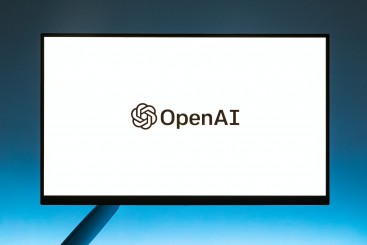The workforce is beginning to change. Largely in creative, communications and tech industries where the popularity of working from home is on the rise, smaller companies are stretching their resources to keep up with the industry giants who offer an extensive list of perks to their staff. It’s Maslow’s hierarchy on steroids. Is our culture finally progressing to a level where companies are expected to genuinely care about their employees? Or is it all a public relations ploy designed to attract the best workers in a competitive market.
Employee Perk or PR Stunt?
It’s easy to see the trend in the evolution of company perks. While well-established companies like Google and Netflix are industry leaders, start-ups are the real kingpins of this new phenomenon.
On the more extreme end of the spectrum is San Francisco based Hedge Fund ‘Numerai’, who operate largely in their own cryptocurrency. The company offers its employee’s cryopreservation as a perk. In a Job advertisement online they explain, “Numerai cares about its employees beyond their legal deaths”.
In another example, Silicon Valley based catering company, Eat Club, pay to offset their employee's carbon footprint both at work and in their home lives.
More common employee perks include extended paternity and maternity leave, various health insurance plans, open working hours and office infrastructure. The latter not referring to a simple kitchen and tea room, but to nap rooms and basketball courts.
In theory, employee perks are intended to cater to the wellbeing of the companies workers. They operate under the general principle that happier people do better, more efficient work. Similar to Maslow’s hierarchy of needs, just reimagined in a more creative way.
This makes even more sense when the perks are in line with the company’s image. For example, Outdoor clothing manufacturer ‘Patagonia’ gives its employees the day off to go surfing whenever the ‘waves are good’. Or when the perks are universally valued, such as Google's recent maternity leave extension.
However, more obscure perks, or those that don’t seem to be directly contributing to employees wellbeing are questionable. Often in these instances employees are not the soul beneficiaries of workplace perks. Although they may be rewarding, there is a case to be made that these perks exist purely to benefit the company and their brand image.
Let's face it, we’d all love to work for Google. It’s almost difficult to believe they get any real work done between volleyball games and cozy siesta sessions in their $18K snooze pods. But did you know that until recently these perks were almost exclusive to the company’s headquarters in California?
While Google has plans to upgrade it’s ‘campus’ in Taiwan this year, the offices most notable perks were previously the inclusion of a company car. This is pretty striking considering that the company’s reputation is largely defined by its employee perks. There was even a Hollywood movie about it.
This becomes more alarming when you consider the reality that some big companies will use nonsense perks to distract potential new employees from more sinister issues hiding within their work culture. An 80 hour work week fits conveniently within the silhouette of a free-flowing snack buffet.
What’s more, generosity, in some circumstances, is psychologically recognised as a manipulation technique. That’s not to say that generosity is a bad thing. However, it tends to put us in a position where we feel as though we are in debt, whether that was the intention of the gift-giver or not; it’s human nature to want to return the favour. This is sometimes known as the Ben Franklin Effect.
If someone regularly gives you a lift home from work you might be more inclined to do favours for them around the office. Perhaps if your company offers you a plethora of generous perks you might be more inclined to say yes when asked to work an extra hour here or there.
Ultimately, practical perks such as healthcare and leave will always trump the more flashy incentives like cryopreservation. To some extent, this is a reflection of what we need in comparison to what we want. Because for many of us work-life balance is a priority, not work-play balance.
The key difference lies in the way that many of these perks, while fun, encourage us to spend more time at the office, be it playing or working. While we’d all like to spend more of our time at work goofing off, the reality is that we need more time to rest when we’re sick, more time to spend with our kids while they’re growing up, more time to enjoy life.


